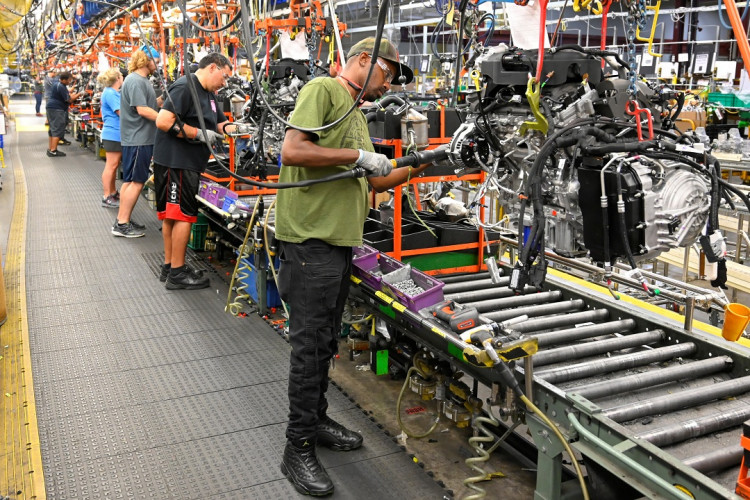The United Auto Workers (UAW) strike, now entering its fourth week, has led to significant layoffs among Detroit's Big Three automakers. As the strike continues, the ripple effect is being felt not only within the companies directly involved but also among their suppliers and the broader U.S. economy.
General Motors (GM), one of the Big Three, confirmed on Monday that it had idled 155 workers across plants in Indiana, Michigan, and Ohio. Ford, another major player, has let go of 537 workers in Michigan and Ohio. Stellantis, the parent company of brands like Chrysler, Dodge, Jeep, and Ram, confirmed the layoff of 570 workers at its facilities in Indiana and Michigan as of October 6. Cumulatively, the Big Three have laid off approximately 4,835 workers since the strike began.
These layoffs are a direct consequence of the UAW's decision to strike. The affected workers were involved in tasks directly linked to the factories that the UAW has targeted. The automakers have not yet disclosed their plans regarding the rehiring of these workers once the strike concludes.
Bryce Currie, Ford's Vice President for Americas Manufacturing and Labor Affairs, commented on the situation, stating, "While we are doing what we can to avoid layoffs, we have no choice but to reduce production of parts that would be destined for a plant that is on strike." He further added that these strike-related layoffs are an "unfortunate result of the UAW's strategy."
The UAW initiated its "stand-up strike" last month, with nearly 13,000 autoworkers ceasing operations at Big Three assembly plants located in Michigan, Missouri, and Ohio. The union's demands are comprehensive, seeking a 36% pay increase over four years, annual cost-of-living adjustments, pension benefits for all employees, enhanced job security, a quicker route to full-time status for temporary workers, and a four-day work week. In response, the automakers have laid off thousands of non-union workers.
The repercussions of the strike extend beyond the Big Three. Suppliers of auto parts to these major companies have also been forced to lay off workers. LM Manufacturing, a Michigan-based company that produces seats for the Ford Bronco, temporarily laid off around 650 workers last month due to the UAW strike. Another supplier, Sodecia Automotive, announced its plans to temporarily lay off approximately 140 workers until late November.
The strike's influence has even crossed borders. GM workers in Ontario, Canada, recently walked off their jobs. However, both parties reached an agreement shortly after, with GM announcing that work would resume at its Canadian facilities. Lana Payne, president of the Unifor union, which represents over 20,000 Canadian autoworkers at the Big Three, mentioned that GM had agreed to all the items its members had advocated for, including pensions, retiree income, and the conversion of temporary workers to permanent positions.
Back in Michigan, UAW President Shawn Fain expressed optimism last Friday, noting that negotiations between the union and the Big Three were progressing positively. He highlighted that GM had agreed to include employees at its upcoming electric vehicle battery plant in Indiana under the UAW contract.
However, the end of the strike is still uncertain. While automakers claim to have presented reasonable counteroffers, negotiations continue without a clear resolution in sight. The prolonged strike is taking a toll on the U.S. economy. According to the Anderson Economic Group, a Michigan consultancy firm, the UAW strike has cost the U.S. economy $5.5 billion in just three weeks. This figure encompasses losses of around $2.68 billion for the Big Three and $1.6 billion for parts suppliers.




